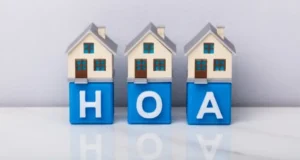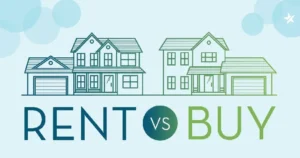Buying a home with bad credit might feel like a daunting challenge, but FHA loans provide a solution for borrowers who don’t have perfect financial profiles.
With credit score requirements as low as 580, a 3.5% down payment, and flexible guidelines, these loans are a lifeline for many.
This article will walk you through everything you need to know about qualifying for an FHA loan with poor credit, including current requirements, tips for success, and comparisons with other mortgage options.
What is an FHA Loan?
A Federal Housing Administration, or FHA loan is a government-insured mortgage backed by the FHA, a branch of the Department of Housing and Urban Development (HUD). These loans are tailored to help individuals, especially first-time homebuyers, achieve homeownership.
Key Features:
- Down payments as low as 3.5%.
- Low closing costs for affordability.
- Flexible credit qualifications, allowing scores as low as 500.
- Higher debt-to-income ratio limits than conventional loans.
- Options for fixed or variable interest rates.
- Terms ranging up to 30 years.
- Specialized loans, such as the FHA 203(k), for financing home renovations.
Benefits: Because FHA loans are less risky for lenders, they come with more lenient requirements, making them accessible to a wider range of homebuyers.
Limitations:
- Cannot be used for investment properties or vacation homes.
- Requires mortgage insurance premiums (MIPs), paid upfront and monthly.
FHA loans are offered through FHA-approved lenders, providing an accessible path to homeownership for those who may not qualify for conventional financing.
| Credit Score | Minimum Down Payment |
|---|---|
| 580+ | 3.5% |
| 500-579 | 10% |
FHA Guidelines
Borrowers with bad credit still need to meet specific guidelines to qualify for an FHA loan. These include requirements for credit history, income, and debt.
FHA Credit Requirements
- No more than one late payment in the past 12 months.
- No late mortgage payments in the past six months.
- Two-year waiting period after bankruptcy (12 months with extenuating circumstances).
- Three-year waiting period after foreclosure.
- Collections and federal debt must be resolved or on a repayment plan.
“Lenders consider more than just your credit score,” says Mark Bennett, Senior Mortgage Consultant at American Home Financing. “A clean recent history and compensating factors like a large down payment or stable income can improve your chances of approval.”
Compensating Factors for Bad Credit
When applying for an FHA loan with bad credit, compensating factors can play a critical role in getting approved. These are strengths in your financial profile that help offset the risk of a low credit score, showing lenders that you’re a reliable borrower despite your credit challenges.
What Are Compensating Factors?
Compensating factors demonstrate financial stability and responsibility in areas other than credit history. They provide lenders with added confidence in your ability to repay the loan.
Common Compensating Factors for FHA Loans:
Larger Down Payment:
Providing a down payment higher than the minimum required can reduce the lender’s risk.
- Example: Instead of 3.5%, offering 10% or more.
- A larger down payment shows financial commitment and stability.
- Low Debt-to-Income Ratio (DTI):
A DTI ratio below 43% indicates you have manageable debt levels relative to your income.- Borrowers with a lower DTI are viewed as less risky.
- Reducing debt before applying can strengthen your application.
- Significant Cash Reserves:
Having savings equal to several months’ worth of mortgage payments reassures lenders that you can handle unexpected expenses.- Example: 3-6 months of mortgage reserves in your account.
- This cushion shows you’re financially prepared.
- Stable Employment History:
Consistent employment in the same field or with the same employer for at least two years demonstrates financial reliability.- Lenders look for steady income over time.
- Rental Payment History:
A history of on-time rent payments over 12-24 months can indicate your ability to manage housing costs responsibly.- Providing proof of rent payments may strengthen your case.
- Limited Use of Credit:
Borrowers with low credit utilization ratios (e.g., below 30%) and minimal debt are seen as more financially responsible.- Paying down credit card balances can improve this factor.
Compensating Factors and Their Impact
| Compensating Factor | Why It Matters | Impact on Loan Approval |
|---|---|---|
| Larger Down Payment | Reduces lender risk; shows financial commitment. | Increases approval likelihood for low credit. |
| Low Debt-to-Income Ratio | Demonstrates manageable debt relative to income. | Offsets credit score challenges. |
| Significant Cash Reserves | Provides a safety net for unexpected expenses. | Reassures lenders of financial stability. |
| Stable Employment History | Reflects consistent income and reliability. | Adds confidence in borrower’s ability to repay. |
| On-Time Rental Payments | Indicates responsible housing cost management. | Strengthens overall financial profile. |
Tips for Qualifying for an FHA Loan with Bad Credit
Even with bad credit, you can improve your chances of getting approved for an FHA loan by following these tips:
Strategies for Success:
- Apply with Multiple Lenders: FHA lenders set their own fees and rates, so shop around to find the best deal.
- Show Compensating Factors: A larger down payment, strong income, or low debt-to-income ratio can offset credit challenges.
- Pay Down Debt: Lowering credit card balances improves your debt-to-income ratio and boosts your credit score.
| Compensating Factors | Impact on Application |
|---|---|
| Large down payment | Reduces lender risk |
| Stable, long-term employment | Demonstrates reliability |
| Minimal debt-to-income ratio | Shows financial responsibility |
Bankruptcy Waiting Periods
Filing for bankruptcy doesn’t permanently disqualify you from getting an FHA loan. However, you’ll need to meet specific waiting period requirements.
FHA Guidelines for Bankruptcy:
- Chapter 7 Bankruptcy: Eligible two years after discharge (12 months with extenuating circumstances).
- Chapter 13 Bankruptcy: No waiting period after discharge, but 12 months of on-time payments under the bankruptcy plan are required.
FHA Streamline Refinancing
Already have an FHA loan? You might qualify for an FHA Streamline Refinance to lower your interest rate or monthly payments, even if your credit has worsened since you took out the original loan.
Streamline Refinance Requirements:
- No credit check or income verification required.
- Must be current on your mortgage with no late payments in the last six months.
- 210 days must have passed since your loan was closed.
“FHA Streamline refinancing is one of the simplest ways to lower your payments,” explains Sarah Greene, Mortgage Specialist at HomeLending Experts.
FHA Credit Requirements Vs. Other Loans
FHA loans are among the most accessible mortgage options for borrowers with bad credit. Here’s how they compare:
| Loan Type | Minimum Credit Score | Down Payment | Key Features |
|---|---|---|---|
| FHA Loan | 500-579: 10% | 580+: 3.5% | Flexible credit and income guidelines |
| VA Loan | 580-620 | None | For veterans; no PMI required |
| USDA Loan | 620 | None | For rural areas; income limits apply |
| Conventional Loan | 620-680+ | 3-20% | Higher credit standards |
Improve Your Credit Score Before Applying
If your credit score is below 640, improving it before applying for an FHA loan can save you money and increase your chances of approval. A higher credit score not only opens the door to better loan terms but can also result in lower interest rates, saving you thousands over the life of your mortgage. Even small improvements to your credit score can make a big difference.
Quick Credit Improvement Tips:
- Pay Down Credit Card Balances: Aim for a credit utilization ratio below 30%, ideally under 20%, to maximize your score.
- Avoid New Credit Applications: Each hard inquiry can lower your score slightly, so hold off on applying for new loans or credit cards.
- Dispute Inaccuracies: Regularly check your credit report for errors and dispute any incorrect or outdated information that could be lowering your score.
- Make On-Time Payments: Timely payments have the biggest impact on your credit score, so be consistent with all your bills and debts.
- Keep Old Accounts Open: The age of your credit history matters, so avoid closing old accounts unless absolutely necessary.
Taking these steps in the months leading up to your FHA loan application can set you up for success and help you secure a mortgage that fits your financial goals.
The Bottom Line
What is the minimum credit score required for an FHA loan?
The FHA allows borrowers with credit scores as low as 500 to qualify with a 10% down payment. For a 3.5% down payment, a score of 580+ is required.
Can I get an FHA loan with bad credit?
Yes, FHA loans are designed for borrowers with less-than-perfect credit. Approval depends on your credit history, debt-to-income ratio, and compensating factors.
How does my credit score affect my FHA loan interest rate?
A higher credit score typically results in lower interest rates. Borrowers with scores above 640 often receive better terms than those below 580.
Are there FHA lenders that specialize in low credit scores?
Yes, some FHA-approved lenders focus on borrowers with poor credit. Shopping around can help you find one that suits your financial situation.
What happens if I have collections on my credit report?
Collections must either be paid, on a repayment plan, or under $2,000 in total to avoid affecting FHA loan eligibility.
Does FHA require a credit check for approval?
Yes, a credit check is mandatory. However, FHA loans consider your overall credit history, not just your score.
Can I improve my credit score to qualify for better FHA terms?
Absolutely. Paying down debt, disputing inaccuracies, and maintaining on-time payments can quickly boost your score.
How long after bankruptcy can I qualify for an FHA loan?
Typically, a two-year waiting period applies for Chapter 7 bankruptcy and one year for Chapter 13, with re-established credit.
















